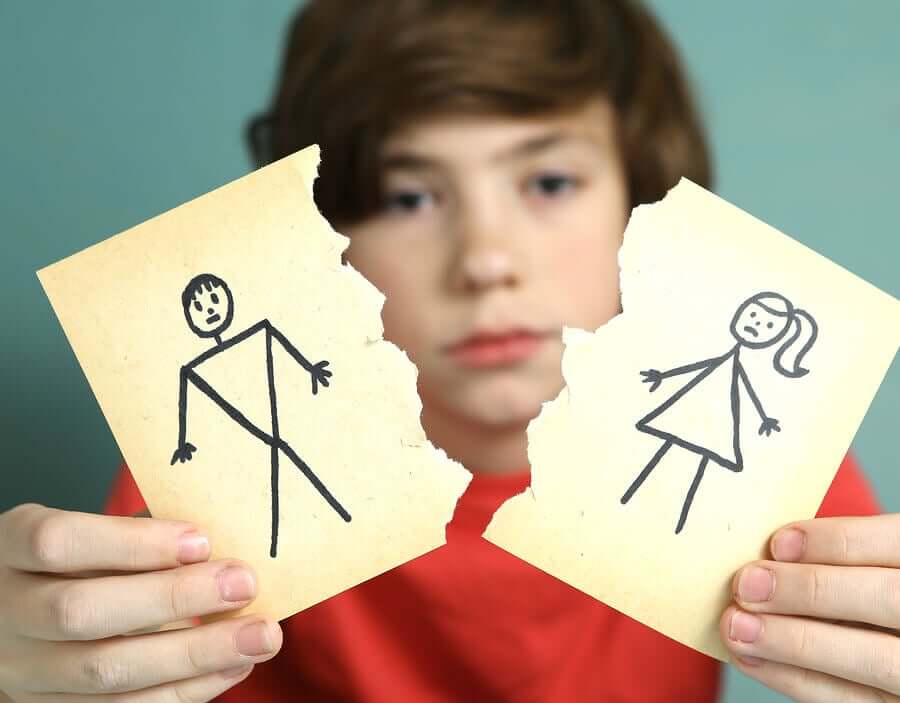Introducing Your New Partner to Your Children

Is it time to introduce your new partner to your kids? When parents go through a separation, it affects every member of the family. Of course, this situation is especially hard on kids. It means they must adapt to no longer seeing one of their parents at home.
Separations are hard on everyone involved. And children become the center of their parents’ attention as they try to handle the situation the best they can. Parents do their best to minimize the impact of separation as much as possible.
But life goes on, and changes continue. Sooner or later, in many cases, one or both parents come to form new relationships.
Sometimes children may experience the sensation of being replaced, or that they’ll have a new mother or father. It’s important they get to know the person and understand that he or she won’t take the place of anyone.

Introducing your new partner to your children
Choose the right moment
Before introducing children to a new partner, parents should be sure that they’re serious about the person they’re with and then involve their children in the relationship. If a parent introduces a new boyfriend or girlfriend all the time, this can end up creating confusion.
So, a new romantic relationship needs to be stable before the first encounters with children take place. When the time comes, look for the right moment, perhaps a special occasion like a meal or an outing… something that allows everyone to feel as comfortable as possible.
Setting the stage
If you’re preparing to introduce your new partner to your children, you need to sit down and talk with your kids first. Explain to them that someone new has come into your lives.
The best thing to do is be as honest as possible and not hide anything. For example, explain how you met, what your partner does, what he or she is like, etc.
Our children’s reactions
When children are small, they may have a positive or negative attitude regarding your partner. It’s a new situation for them and they may have a hard time understanding.
If your relationship is very serious and you’re already living together, then you need to have a serious talk with your partner as well. Talk about the way in which you’re raising your children so that things can continue down the same path as always.

When it comes to adolescents, our children are more aware of what the presence of a new boyfriend or girlfriend means. They usually understand that a new partner won’t take their place, or take the place of their other parent. However, that doesn’t mean you can’t remind them.
Older children also understand that this can be an uncomfortable situation. Therefore, they’re more likely to try to make things go as smoothly as possible.
When children are closer to adulthood and know their parent’s partner, they’re more prone to take things in stride. Of course, unless there are other issues going on. However, in general, adult children face this situation with more empathy .
Parents deserve a second chance at love
If you’re the child of a parent who’s in a new relationship, there’s a golden rule you need to understand. Your parent’s new partner has nothing to do with your parent’s relationship with you. Therefore, you need to be respectful of your mother or father and of this new relationship.
Children should offer as much support and understanding as possible. While you may not feel affection for this person at first, that doesn’t mean you can’t both work together to build your own sort of connection.
Avoid conflicts as much as possible and try to find common ground in any situation. In the case of small children, new relationships aren’t usually problematic, but they do require hard work and effort.
It’s important to always seek happiness in these situations and not dwell on negative first impressions. Furthermore, you should remain open in regards to meeting your mother or father’s new partner.
All cited sources were thoroughly reviewed by our team to ensure their quality, reliability, currency, and validity. The bibliography of this article was considered reliable and of academic or scientific accuracy.
- Mendez-Aponte, Emily. (2002). Cuando papá y mamá se separan. Editorial San Pablo.
- Vallejo-Nágera, A., & Aragon, B. R. (2006). Hijos de padres separados: consejos para recuperar la armonía y el respeto ante un nuevo futuro. Temas de hoy.
- Largo, R. H. (2000). Hijos felices de padres separados. Medici, 32.
- Cuixart, P. C. (2013). El hijo de padres separados. Pediatr Integral-Universidad Abat Oliba CEU, de Barcelona, 17(10), 71-677. https://www.pediatriaintegral.es/wp-content/uploads/2013/xvii10/01/671-677%20Padres%20separados.pdf